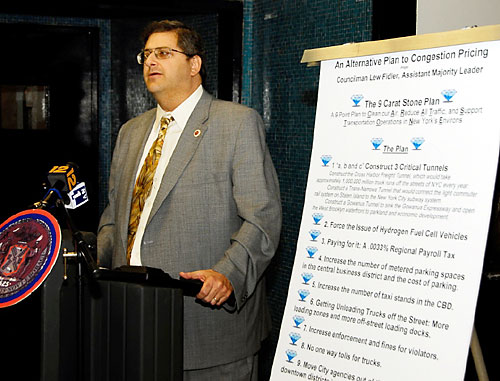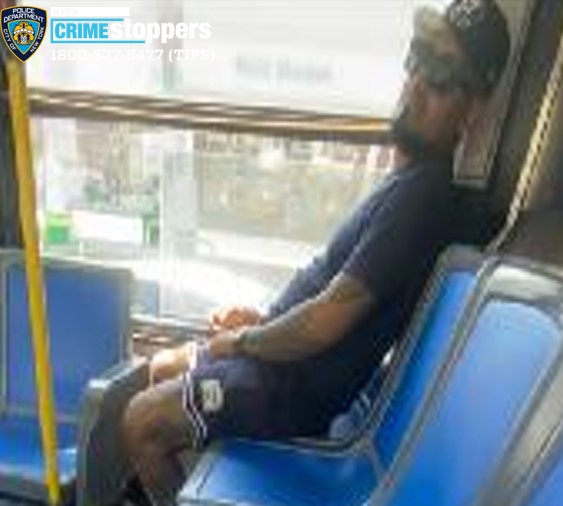Here’s an idea whose time has come —Â again: How about a subway to Staten Island?
This back-to-the-future bombshell was dropped by Councilman Lew Fidler (D–Canarsie) last week as one of the points in his “Nine-CARAT STONE Plan” (the awkward acronym stands for “Clean our Air, Reduce All Traffic, Support Transportation Operations in New York’s Environs”).
The tunnel, which would allow for an extension of the subway system to Staten Island from the critical 59th Street station just north of Bay Ridge, was first proposed back in the 1920s — and workers even started digging it — but the project was abandoned due to opposition of Staten Islanders and disputes between then-Mayor Hylan and the then-independent subway operators.
“The city put it out to bid, but they didn’t like the numbers that came back,” said transit historian Larry Furlong. “And, obviously, the people of Staten Island, which was then quite rural, didn’t want it.”
But times have certainly changed. Drivers — many coming to and from Staten Island — choke the Brooklyn–Queens Expressway all day.
In addition to a transit tunnel, Fidler supported a cross-Harbor freight tunnel and burying the BQE to open up the Sunset Park waterfront to parkland and economic development —Â both dreams of transit wonks.
To pay for it, Fidler would levy a one-third-of-one-percent tax on all employer payrolls in the tri-state region.
“Congestion is a regional problem and requires a regional solution,” he told The Brooklyn Paper. “In order to get off Staten Island, residents have to use one fossil-fueled vehicle or another — car or bus. It’s ridiculous that the fastest-growing borough has no access to the rest of the city.”
Fidler called the Nine CARAT STONE Plan his “alternative to congestion pricing,” which he believes does not share the burden fairly. All told, Fidler’s follies would cost well more than $10 billion, he estimated, but the payroll tax would generate $1-2 billion.























